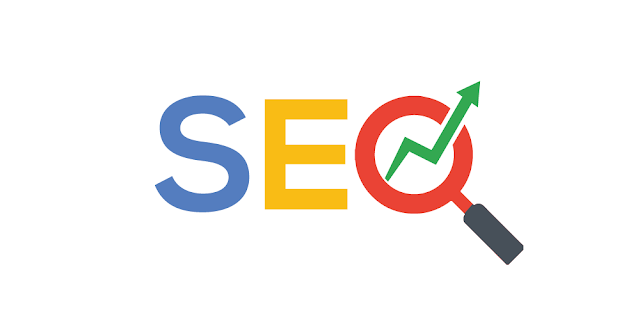 |
| Best 12 Tips To Improve Your WordPress Website for Higher Rankings |
Today, WordPress is the most popular content management system on the internet. In case you’ve also chosen it for your website, here’s the big set of tips on how to optimize it for better performance.
(toc)
WordPress powers more than 60% of the websites in 2020. To ensure your site ranks higher on the search engines, you have to implement various WordPress SEO tactics. Let’s look at the twelve best ways to boost the rankings of the WordPress site on the search engines.
Choose the Right Hosting Provider
Your PHP hosting provider has an important role in your SEO. Since Google takes loading speed into account when ranking sites, you need the solid wordpress hosting that improves your website’s performance. If your host is slow, no matter how much you optimize your website, you won’t see any significant results (in terms of loading speed).
With slow loading speeds, your site will measure poorly in other ranking factors, such as bounce rate, average time spent, and pages/session. All of these metrics will influence how your site ranks in search engines.
As your page load time goes from one-second to three-second, the probability of bounce rate increases to 32%. When the load time further increases to five-second, the possibility of the bounce rate rises to 90%.
Your host also affects the downtime of your site. If your website is slow, contact your host to know the reason behind it. If they’re unable to justify (such as you’ve hit the limits of your allocated resources), then the chances are their servers are slow.
It is always a good idea to go with one of the best WordPress hosting providers as they provide impressive speeds with little to no downtime.
Tip: Choose a hosting provider that uses SSD drives for better performance.
Speed Up Your Website
Choosing the right hosting provider is the first step towards improving your website speed. There are other things as well that you must do to boost your loading speed.
The following tactics can help you speed up your website.
- Minimize HTTP requests: When someone visits your website, their browser makes HTTP requests to download various elements of the page, such as images, scripts, and stylesheets. You can minimize the HTTP requests by merging scripts and styles in one file or removing unnecessary ones.
- Use Asynchronous loading: When you use asynchronous loading, you tell the browser to simultaneously load all the elements on the page. Use plugins like Async JavaScript to activate asynchronous loading.
- Reduce the size of images: Visuals bring life to your content, but they take up a lot of space. Therefore, it is crucial to optimize all the images on your website. Make sure you use the right image format. Also, run your image through a compressor before uploading it to reduce the file size.
- Use a CDN: As the distance between your visitors and server increases, the page speed will decrease. Content Delivery Networks (CDN) store a copy of your website in various data centers located in different places. They serve the webpage from the nearest server, thereby reducing load time.
- Deactivate or uninstall plugins: If you are not using certain plugins, it is best to uninstall them. They take up an overwhelming load on your server, thereby reducing page speed.
- Reduce plugins usage: Some tools like Mailchimp and SEMrush offer their services as a plugin for WordPress users. To reduce the server load and increase site speed, it is best to use their cloud apps. You can then use tools like Automate.io to connect all the cloud apps in one platform, so you won’t have to switch between websites all the time.
- Leverage caching plugins: A cache is a temporary storage area. By leveraging caching plugins, you can store a copy of a webpage (already visited by the user) in their browser, thereby reducing the load time. Plugins like W3 Total Cache can help you enable caching on your website.
Publish Well-Researched Quality Content
Well-researched and high-quality content is a must for every website. It demonstrates that you’re an expert in your domain and know what you’re doing. For instance, if you’re educating people on financial matters, you must ensure that all the views and opinions you publish on your website are factually correct and skillfully performed.
As a matter of fact, people browse the internet to find some valuable information. Therefore, it is essential to write on topics that most of your target audience is looking for online. The best way to find the most searched phrases is by using Google. Open Google, enter your seed term (a broad phrase in your niche). You’ll see a few suggestions.
For example, when I typed “optimize the website” on Google, I saw various suggestions.
![]()
Then, click on the search without changing the phrase. You’ll see tons of results. Scroll down, and you will see a section “people also ask”. Click on any of the results in that segment, and it will start expanding. That’s a great way to find what people in your niche are searching the most.
![]()
Use tools like Ubersuggest to find keywords with low difficulty that you should use in your content.
![]()
Bonus: Make sure you write the content for your audience. For example, if you are writing content for beginners, try to avoid technical jargon as much as possible and use simple language. However, if you are targeting experts, avoid talking about the common industry terms that they might already know and focus on advanced tactics. This will make the reader stick on your page for longer.
Optimize Your Content’s Title and Heading
Optimizing your title and heading is yet another great strategy to improve your website’s ranking in search engines. It involves writing titles that tell Google what your page is about and influences users into clicking on it.
Follow title tag optimization best practices for better results.
- Include your target keyword in the title.
- Create a title tag between 60-70 characters.
- Use your brand’s name in the title.
Also, use header tags throughout your content to make it more readable and crawlable for search engines.
As a rule of thumb, you should use only one H1 tag per page and a hierarchy of H2, H3, H4, H5, and H6 underneath that.
You can change the header tags via the drop-down menu within the WordPress editor.
![]()
Secure Your Site With SSL
Google considers HTTPS as a ranking signal. Google says, “security is a top priority for Google.”
Another reason why securing your site with SSL is important because it can act as frontline warriors against cyberattacks. In 2017, Equifax saw a breach that exposed the data of their 148 million consumers.
Remember, SSL won’t make you foolproof from cyberattacks, but it can significantly reduce the chances of data theft.
You can buy an SSL certificate from your domain or hosting provider. Major domain name registrars, such as GoDaddy, Namecheap, and Bluehost offer SSL certificates.
You can also purchase an SSL certificate from third-party websites, such as SSLs.com and Digicert.
Additionally, use a Web Application Firewall (WAF) to further strengthen your website’s security. WAF can protect your site against top web application security risks, such as SQL injection, cross-site scripting, and remote file inclusion.
Optimize the URL Structure
Your URL structure is what users see in their address bar when they visit your website.
![]()
One of the biggest benefits of optimizing your URL structure is that it gives the visitor and search engines an idea of what they can expect on the page.
Some examples of good URLs are:
https://www.example.com/optimize-your-wordpress-site/
https://www.example.com/how-to-boost-website-ranking/
Some examples of bad URLs are:
https://www.example.com/?p=1234
https://www.example.com/archives/567
Notice the difference between both types of URLs. In the first one, a user can guess what they will see on the page just by looking at the URL text. In the second one, the URLs are unrelated to the content, and no one can guess what the page is all about.
Another benefit of optimizing your URL structure is that you can integrate keywords in it, improving your chances of ranking higher in search results.
You can change your URL structure by going to Settings and then Permalinks. Choose the post name option to change the URL structure to reflect your content’s title.
![]()
Structure Your Website Appropriately
A website often consists of different parts, such as blogs, products, and feature pages. The site structure deals with how these elements are grouped, linked, and presented to the visitor.
When you structure your website appropriately, Google will be able to index your website faster, and visitors will find what they’re looking for.
You probably have articles on your site that are on the same topic. Without a decent structure, you would be competing with yourself for a high ranking.
Sort your blogs into categories and tags to structure your website properly. Sorting will help you manage content by topics and enable users to find the content they are looking for. If you sell products, make sure they are arranged in the right categories.
To add/edit the category to a post, click on Writing under Settings.
![]()
Use the Tags box on the right-hand side of the screen to add or edit tags to your site.
![]()
Improve Internal Linking Structure
An internal link is any link on one page of your website pointing towards another page on your site. Internal links help search engine crawlers find different URLs on your website.
Another benefit of improving your URL structure is that it gives your visitor more reasons to stay on your website for longer. This, in turn, improves the average time spent on site and reduces the bounce rate.
One of the best ways to improve the internal linking structure is by adding the URL in between your content.
This example from Moz indicates how you can add internal links between your content.
![]()
Texts in blue (meta robots and robots.txt files) are the links pointing towards another page within Moz. You can also use plugins like Contextual Related Posts to display related posts at the end of the article, just like this.
![]()
Install The Right SEO Plugin
One of the reasons why WordPress is popular is that there’s a plugin for almost everything, and search engine optimization is no exception. Choosing the right plugin for SEO can help you make your website search engine friendly.
The most popular SEO plugin for WordPress is Yoast SEO. If you are skeptical about paying first, try the free version of Yoast SEO.
Yoast SEO allows you to optimize your content for keywords, edit meta descriptions, check the readability, and preview how your content will look in Google results.
![]()
Yoast SEO also ensures your technical configuration (robots.txt, sitemaps, and .htaccess) is on point.
Other great SEO plugins that you can use on your WordPress site are:
- All in One SEO Pack
- The SEO Framework
- SEOPress
- Ahrefs
- Rank Math
When choosing an SEO plugin for your WordPress website, analyze the features, and check which one best fits your business needs.
Tip: Use only one SEO plugin on your WordPress site. If you use multiple plugins, each will try to override the other’s setting, thus creating confusion.
Add Context to Your Content Using Schema Markup
Schema markup is an additional piece of code that adds context to your content. It helps search engines better understand your content and makes your listings more attractive. As a result, you increase the chances of ranking higher and improving CTR.
![]()
Your WordPress theme might already have a schema installed. Use Google Structured Data Testing Tool to find if your site has schema markup. If you don’t have a schema installed, then you can use the Schema plugin.
Acquire Backlinks From Authoritative Websites
Backlinks are the links from other domains pointing towards your website. When a lot of sites link to the same page or website, it gives a signal to search engines that your content deserves to be on the top of the SERPs.
However, make sure that the links you acquire are contextual and from high-authority sites.
For example, if your content is about dogs and you are acquiring backlinks from sites that talk about monkeys, these links will be of no use.
If there are too many links from spam websites, it’ll do more harm than good to your SEO.
These methods can help you acquire backlinks from authoritative websites.
- Publish in-depth guides about various topics in your industry.
- Send cold emails to bloggers in your niche.
- Guest blog on popular websites.
- Compile a list of statistics related to your industry.
- Discover unlinked mentions of your brand. Reach out to the webmasters of the website and request them to convert the mention into a link.
Optimize For Mobile-First Audience
Optimizing your website for the mobile-first audience has become more important than ever. Google considers mobile-friendliness as a ranking factor when displaying search results on mobile devices.
As of April 2020, 53.81% of overall web traffic comes from mobile devices. By not optimizing your website for a mobile-first audience, you risk losing a lot of traffic (and customers).
For WordPress users, the best way to optimize for a mobile-first audience is by choosing a responsive theme.
Using plugins is yet another way to optimize your website for mobile devices. Plugins like WordPress Mobile Pack help you convert your website’s content into a progressive mobile web application.
AMP Project is another plugin that can help you enable AMP (accelerated mobile pages) compatibility on your website, increasing page load speed on mobile devices.
For WordPress users, the best way to optimize for a mobile-first audience is by choosing a responsive theme like the Total WordPress theme.
Final Thoughts
Getting your website on the top of the search results helps increase organic traffic and generate more leads. Make sure to pick the right host, select a responsive theme, speed up your website, and install an SEO plugin. By implementing these strategies (along with others in the list), you’ll start seeing significant improvement in your website’s rankings.





